
The "Listen to Musicians" section is a section where professionals who usually play music on the stage go down the stage and speak in words.This time, we will interview the guest, Riyo Uemura, who is active as a violinist in Berlin, Germany. I would like to talk about the theme of "studying abroad in music."
(Interview: March 2008)
-Profile of Riyo Uemura-
Violinist Riyo Uemura
Graduated from Toho Girls' High School Music Department and studied under Igor Ozim at Cologne University of Music.After studying as an overseas trainee of the Agency for Cultural Affairs (dispatched for 3 years), he graduated with the highest grade.Studied under Pierre Amoyale at the Lausanne Conservatory and graduated at the top.Recognized by many conductors, he has collaborated with orchestras in Europe more than 80 times.He has also performed with the Cologne Chamber Orchestra, the Prague Sinfonietta, and the State Halle Philharmonia Orchestra, and has been invited to many music festivals in Germany and St. Petersburg.In addition, Schumann's concerto performed on a concert tour in a major hall in Germany has also been released on CD from Sony, Germany.
All Japan Student Music Competition Violin Division Elementary School Student Division 1st place nationwide, Michelangelo Abad International Competition Winner, Leopold Mozart International Competition Highest Place, Mozart Special Award, 15th Nippon Steel Music Award Fresh Artist Award, etc. Has numerous awards.
-Introduction Please tell us your background.
Uemura I started playing the violin at the age of four, and when I was in the fifth grade of elementary school, I won the All Japan Student Music Competition sponsored by the Mainichi Newspapers.High school enrolled in Toho's music department, and when he was in the third grade, he took second place in every contest, and the following year, after graduating, he studied abroad in Cologne and studied under Igor Ozim sensei.He won the Michelangelo Abbado competition overseas and won the highest prize in the Mozart competition.We also received the 4th Nippon Steel Music Awards Fresh Artist Award.After spending six years in Cologne, including the Cologne University of Music, he studied under Pierre Amoyale in Lausanne, Switzerland, and then came to Berlin about eight years ago.Since I was at Cologne University of Music, I have been fortunate enough to be invited as a soloist in an orchestra, most of which are about 5 times at regular concerts.
-What made you start playing the violin?
Uemura: My mother said, "Would you like to play the violin?" And I immediately said, "I'll do it!" ...
-Then, is your mother also playing the violin?
Uemura No.My major was musicology, but my mother is not a violin but a piano.My hands are the same as my mother and they will be small, so it seems that he recommended the violin considering the future.I had a piano at home, so I think I was used to it.
-Which did you like, violin or piano, when you were a kid?
Uemura: I don't remember which one, but compared to the monophonic violin, most of the songs can be played by one person, so I really liked the piano in that sense.As a difference, I feel that the piano was fun to play.
-Are you still playing the piano in parallel?
Uemura: I've been learning the piano from my mother since I was little, and I used to play the piano as a sub-department at Toho Kiri and Cologne University of Music.When I was in Cologne, I also had a piano at home.After that, after I went to Lausanne, I wasn't a sub-department, but I played it because there was a piano in the lesson room of the school.After graduating, I couldn't use the lesson room at school, and I didn't have a piano at home, so I gradually moved away, but I want to play again.
-When you started playing the violin, did you think you would go abroad in the future?
Uemura That's right.I remember clearly when my mother asked me, "Do you want to start playing the violin?", What came to my mind suddenly was the scene of playing solo in a large venue with the orchestra in the background. was.
-It was an image from that time.
With the orchestra in the background
Uemura: I think I've probably seen such a program on TV.So I wondered if I could only think of playing the orchestra in the background (laughs).
-Still, I thought I would be a professional one day.
Uemura: There was no doubt that playing the violin meant going on as a soloist.
-What made you interested in classical music? Is it because you have classical music around you?
Uemura That's right.I think classical music is the norm when it comes to music.
-Did you ever shift to another genre?
Uemura: You didn't.Did you say that it didn't fit very well ... For example, when I entered elementary school and the classmates sang, it was a very old story, but I was watching the top ten, but it was just entertainment. I didn't like to listen to it.
-When did you specifically think about studying abroad?
Uemura At least when I entered high school, I started thinking.
-At that time, studying abroad was rare, wasn't it?
Uemura That's right.Nowadays, studying abroad is increasing in both high school and university.I wanted to go abroad early, and I had a strong desire to study independently.
-Why did you choose Germany?
Uemura: Actually, I was thinking about New York at first.At that time, the mainstream of soloists was to study at Juilliard.So at the Aspen Music Festival
When I went to high school, sensei was good and I was undoubtedly thinking of going to Juilliard.
-Why did it become Germany?
Uemura When I was in the third year of high school, I took a lesson with Ojim sensei, who was teaching to Toho.That was really good.I think it was October or November, but from that point on, I suddenly started thinking about studying abroad in Germany, where Ozim sensei teaches me, rather than Juilliard.
-You changed suddenly.
Uemura Yes.At Toho, I was able to choose a second foreign language, but until then I had never thought of going to Germany, so I was only taking French (laughs).However, I also helped with the idea that Europe is a good place to study music, so I decided to study abroad in Germany in a hurry.In the end, I left for Germany without being able to speak German at all.
-Do you feel like you decided to go to Germany because you wanted to go to Ozim sensei rather than going to Germany?
Uemura That's right.really.
-It's important to meet sensei.
Uemura That's right. I think sensei is very important.I also think that compatibility with sensei is important.
-Do you think it's better to look for sensei in advance than to look for sensei after entering school?
Uemura That's right.If possible, I think it's best to actually learn at a seminar.There are many good sensei, but I think it's a different story whether it's compatible with me or not.I think it's best to decide after actually taking the lesson.If you have a very popular sensei and you have a lot of students, it is recommended that you discuss it properly, for example, take a private lesson, wait for your turn, and prepare your language in the meantime.
-The most important thing is sensei.
Uemura Of course, there are some people who have contacted sensei since they came to foreign countries and have met good sensei.Also, if the person himself has another strong purpose of learning in that place, although sensei is important, it may be a little different.Still, I think that compatibility with sensei is very important.
-The encounter with Ojim sensei was valuable, wasn't it?
Uemura That's right.I think I was lucky to meet you.If I hadn't met and went to New York, I think it would have been a different life.I can't really imagine it, but ...
-Have you studied abroad for a long time before going to Cologne?

Uemura No.I went to the Aspen Music Festival for two or three weeks.
-You mentioned earlier that you studied abroad without being able to speak German at all. Wasn't you worried?
Uemura Ojim sensei is very good at English and speaks English more and more, so I didn't feel much anxiety about communication in the lessons.It's more difficult after going than anxiety before going (laughs).
-What was the hardest part of going?
Uemura: It was my first time to live alone, and the climate is far north of Tokyo, so it's dark and the sun doesn't shine.Besides, at that time, there weren't any cute or nice things in the store compared to Japan.It feels like that (laughs), but if you live alone and go out to the city for a change, there is no such thing as a nice thing, and if you are a good person looking for something, you may find a good one. At first glance, there was nothing cute, so I felt dark.Even in that respect, I was very depressed ...But even at that time, I was able to overcome it because there was sensei who taught me very enthusiastically.
-So that's it.
Uemura: It may be different from people who have friends in the area, but in that sense, I think sensei is important.In addition to the unfamiliar situation of living abroad, I think it is difficult to have a hard time with sensei.Now that the Internet is widespread, I think the environment is not as depressing as it was back then.
-So you stayed in Cologne for 6 years and then went to Switzerland.Why did you go to Switzerland?
Uemura: In Japan, I graduated only from high school and studied abroad, so I had to take all the classes at Cologne University of Music.After that, by the time I finished my studies in Cologne, I wanted to learn a slightly different sensei.So when I attended the class and took lessons of about 3 sensei, I thought that I was satisfied wherever I went because all sensei were wonderful, but first of all, I was struck by the beat. It was Lausanne that was decided when I noticed the story.I attended school in Lausanne for two years.After going to Lausanne, I attended the soloist course in Cologne, took an exam, and graduated.
-Which school was it?
Uemura This is Lausanne's Conservatoire. sensei is a person who is active as Pierre Amoyale and soloist.
-Are there any musical differences between Germany and Switzerland?
Uemura I felt a lot of difference.After all, Germany has a lot of composers for a long time, and I felt that it was a very musical city.Of course, Switzerland also has composers, but the number is different and the history is different compared to Germany, so I got the impression that it is musically neutral.I didn't feel that strong musical element.But it's a very beautiful place, Lausanne.Nature is beautiful.
-Yeah yeah.
Uemura: It was good that sensei also taught me from a soloist's point of view after focusing on the sense of style in Cologne, and the Swiss people were all relatively friendly and cheerful, so human relations. I was blessed with it and had a good time.While I was in Switzerland, I came to Lausanne with all my might, and I thought that sensei's teachings were valuable.However, my desire to return to Germany remained strong, so when I finished school, I returned to Berlin again.
-At that time, you were in Berlin instead of Cologne.
Uemura I went to Berlin when I lived in Cologne, and I really liked the city at that time.Then I had a connection and met another good sensei, who lived in Berlin.
-After that, you've been in Berlin for about 8 years.
Uemura It's been about 9 years since Lausanne's school was over.
Also published in German newspapers
-I think there are some good points and bad points in studying classical music in Germany, and what are the differences from Japan. Please tell us about those points.First of all, are there any good points?
Uemura As I mentioned earlier, Germany has many composers, so I think you can learn the important aspects of music.For example, in the extreme, I think it's a country where you can learn musical things from your daily life rather than playing solistically.
-So that's it.
Uemura Orchestra also has a number of state and national orchestras, and it sounds very good, and since classical music has a long history and has taken root, I feel that the position and position of a musician is solid.I think it's a good point that if you like the performance, it will be used as a soloist.
-Is there a lot of such opportunities?
Uemura: I think that what will be an opportunity depends on each person's personality, but there is a point that they will look at it fairly and if they like the performance, they will use it.I'm grateful for those who don't have anything.
-What does it mean to have nothing else?
Uemura For example, if you like the performance anyway, even if you don't have an introduction, you will be invited as a soloist.
-Are there any bad points?
Uemura I thought about it, but I don't know what's wrong.
-Are there any differences from Japan?
Uemura That's right.When you ask for a job, in Germany you are clearly asked, "How much will you play?" Or "How much will you request?"I think Germany is probably the most prominent, but that is the most different from Japan.It's direct, but it's said that way, so you don't have to worry or worry about it (laughs).
-Are you asking only the price first?
Uemura No (laughs). It's like, "What month, what day, where and how much can you play?"We are very grateful.
-It's important, isn't it?But it's interesting.
Uemura: I think German people are people who communicate in a straightforward and clerical way.
-Japan can't do that.
Uemura That's right.I think it's difficult.Maybe it's because I'm not very good at distracting myself (laughs).
-Are there any advantages for Japanese people when working in Germany?
Uemura: I'm Japanese, so I've never felt that it was an advantage or a disadvantage.
-Is it because you are fluent in languages?
Uemura No, I'm not fluent in German at all.
-So, have you ever felt inconvenienced in words?
Uemura: There was at the beginning.Even though Ojim sensei was good at English, he communicates in English.For example, when I have a lesson date changed, I have to explain why I want to move the date with all my words, but I can not convey it politely. There was something I thought was good.
-Yeah yeah.

Uemura: But if you're a person who doesn't listen, you can't help it, but if you're a person who listens to you, even if you're not fluent in languages, if you speak with the intention of telling it in good faith, that will be conveyed, so somehow. think.To put it the other way around, communicating in Japanese is much more difficult for me.Of course, Japanese is native, but there are many aspects that are difficult even in Japanese.So, in that sense, I don't think it's what the language is.I never felt that it was in English ... or because it was German.There is a saying that you shouldn't have a hard time in every language (laughs).
-Did the language still work to your advantage or disadvantage in finding a job?
Uemura How is it?Broadly speaking, it may be included in language skills, but I had a hard time as to how much I could be smart and how much I could make my point.But sometimes I think it's more of a problem before that than language ability.
-So that's it.
Uemura Of course, if you've cleared that and have reached the stage where your language skills aren't enough, I think it will be a language problem.But if you get there, I think you will be able to learn languages as needed.So, it's best to be able to learn a language, but before that, I have a lot of problems with how to communicate and before the language, so I think that part is also important.
-Is it difficult in Germany if you don't make a clear statement?
Uemura: Well, self-assertion is necessary.At least I think you shouldn't be humble.You shouldn't say anything lower than what you're doing.I think it's difficult for Japanese people to have humility.I still have a lot of remorse.
-That's right.
Uemura But, conversely, it's certainly very easy to understand because it's often literal.I felt it when I went to Switzerland.Switzerland is a little more sociable than Germany, and sometimes it's not exactly what it says.I said that in social terms, but it doesn't mean that directly, but it means something else, and when I was in Switzerland, I thought it would be quite difficult to wear it. is.Compared to that, Germany is very simple, it's just what you're saying, it's slamming, and if you don't understand something, it asks you clearly.On the contrary, it is very easy to communicate.
-It's an easy-to-understand national character.
Uemura That's right.
-Please tell us how you found your current job.
Uemura There was an orchestra called Classice Philharmonic Bonn in Bonn, and it was the first time that he used it as a soloist there when he was in Cologne.The orchestra was an orchestra touring in major halls all over Germany, so I'm glad I played a lot in the big halls.Played solo once and then called by the conductor, and connected, and in other orchestras, played when he was a guest conductor, who called to his own orchestra. Sometimes he gave me a favor.I think it was very good because I was connected like that.
-Soloists are not selected by audition.
Uemura Audition is not open to the public.At least I haven't heard of it.Many of the people who played in the Classice Philharmoniker orchestra were wonderful, later becoming members of the Berlin Philharmoniker orchestra and concertmasters of other orchestras.I am grateful that I have gained a lot of experience with the orchestra in the background.
-It's a wonderful experience, isn't it?Have you ever performed with an orchestra in Japan?
We also performed with the Nagoya Philharmonic Orchestra's regular concerts, the Tokyo Philharmonic Orchestra and Paganini's Konzert, and the Gumma Symphony Orchestra.However, the number of times is overwhelmingly higher in Germany.
Criticism of Chaiko in the newspaper
-Which do you find easier to play, Japanese or German?
Uemura: You may think of each other, but I don't see many claims about Japanese people, so they match each other.Sometimes I feel like what I should do (laughs).With a German orchestra, you can tell that you have the power to play this kind of music, so if that happens, I'll try again, and the synergistic effect will make the music better and better.A German orchestra has a solid foundation unique to the home, so it's easy to play in that sense.The Japanese orchestra is also ... delicate.I think that the number of wonderful performances is increasing, probably because more people are learning abroad.
-Is there something like national character in music?
Uemura That may be true.However, I sometimes wonder why it's a little strange.Japanese people value harmony, so I think that the orchestra that everyone plays together is suitable, and the German who has a strong self-assertion is suitable for the soloist, but in reality, the German plays as a soloist. I'm better at playing in orchestra than in Germany, and I feel that Japanese people are better at soloing.I sometimes wonder because it's a contradiction.
-is that so.It's interesting.Why?
Uemura: Maybe if the Japanese feeling of trying to get together with everyone is too strong, the musical self-assertion will be withdrawn, and as a result, it will not lead to the "sounding" of the orchestra. ..
-Are you planning to continue collaborating with the orchestra as a soloist?
Uemura That's right.I would like to continue to be a performer who is active as a soloist both in Japan and overseas.
-What else do you want to do in the future?
Uemura: I was a judge at the Mainichi Newspapers student music competition for three years until last year, but I also listened to the performances of elementary school students, junior high school students, and high school students and told them what I had learned so far. I thought.When I have a concert in Japan, I'm in Japan, so I'm thinking about taking the form of teaching directly at that time and having an assistant look at it when I'm not.
-Do you have a musical dream?
Uemura My dream is to play all Beethoven's quartets once I've been able to take it seriously, make enough time, and get together musically compatible people.There are 10 sonatas for Beethoven's violin and piano, and I went around Zyklus to play all 10 songs.So this time in November, I will play from the beginning again at the Asahi Culture Center, but Beethoven's sonatas will not be enough no matter how many times I play, or the charm is not exhausted.At one point, I thought that this would eventually lead to a quartet.However, in the quartet, the musical compatibility of the members is very important, and it takes a lot of time to match, so it is important that all four people can manage the common time and that all four people are in a place where it is easy to get together, so it is very difficult. I think.But I think it would be great if it could be realized someday.
-I hope it can be realized.
Uemura Yes, it's really a "dream".
-What exactly is music for Uemura?
Uemura It's very difficult to say that in one word, but what I keep in mind at the concert is to convey what was ringing and what I wanted to say among the composers.And I think it's ideal to play the music in the most lively way, and by doing so, I think it will be conveyed to the audience at the concert.At concerts, I always want to share with the audience the world that the composer felt and thought about in a living way.
-So that's it.
Uemura Also, I have some good friends who are doing things other than music, but when I listen to those people, I feel that there are many things in common when digging into any field. increase.I express it in music, but people in other fields express it differently.Perhaps the music I play is relatively easy to express as a means of expression.However, since the way of expression does not take the form of a substance, it is easy to become unreasonable, and because it does not take the form, it seems unnecessary, or it is cut if there is no budget. maybe.But that's why, on the contrary, apart from being professional or familiar, I think that people who are purely music lovers need good music.I play in public, think about myself and others by playing music, gain experience, and get to know and influence various people through music.In other words, I am devoting myself to various things depending on the music.So, for me, music is "being in my life."
-Thank you for your wonderful words.
Uemura No, no.
-Finally, if you are aiming to become a professional, please give us some tips and advice on how to succeed as a professional.
Uemura I think it's important not to be humble in order to be a professional in Germany.Then, when studying abroad, I think that sensei, which is a good match, will teach you.
-It's very important to meet a good sensei.
Uemura Yes.I think I've come this far because I've been blessed with encounters. Even if sensei is a good musician, it's a waste to have a hard time because he doesn't fit his personality.I've been seeing people who are struggling where they don't have to, so I'm lucky in that respect.
-So that's it.Thank you for your valuable story today.
Uemura You are welcome.
■■■■■■■■■■■■■■■■■■■■■■■■■■■■■■■■■
Asahi Culture Center Lecture by Riyo Uemura
Riyo Uemura, who is active as a soloist in Germany, invites you to share the charm of Beethoven's violin and sonatas for piano.Please enjoy playing at a close distance.
Date: November 2008, 11, 8:1 pm
Location: Shinjuku Sumitomo Building 7th Floor Asahi Culture Center
Performances: Beethoven Sonatas Nos. 1, 2, and 3 for Piano and Violin
Detailed link:
http://www.asahiculture-shinjuku.com/LES/detail.asp?CNO=30602&userflg=0
For more information: http://www.riyo-uemura.com


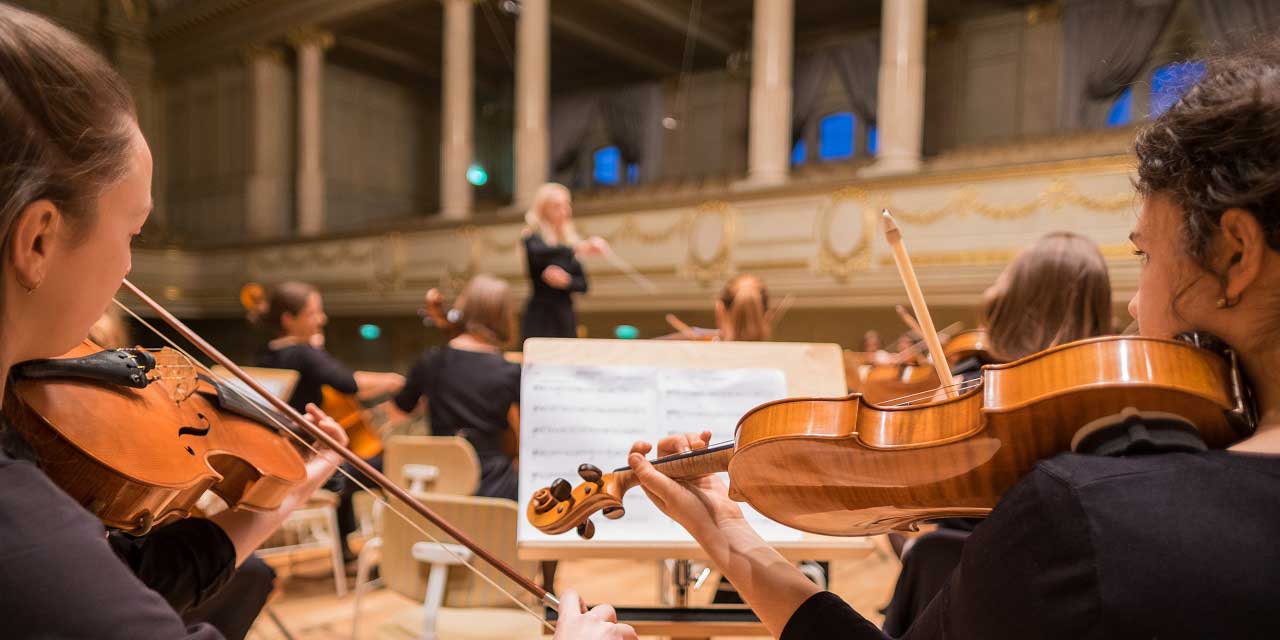
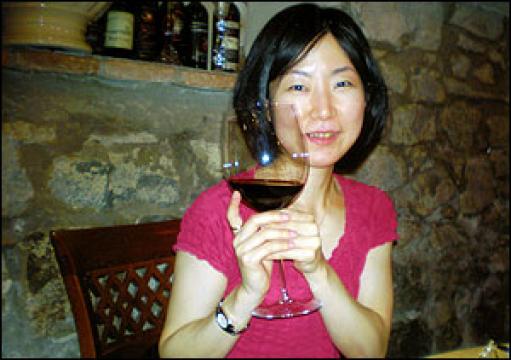
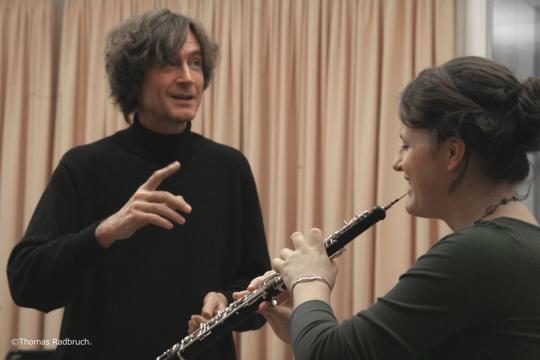

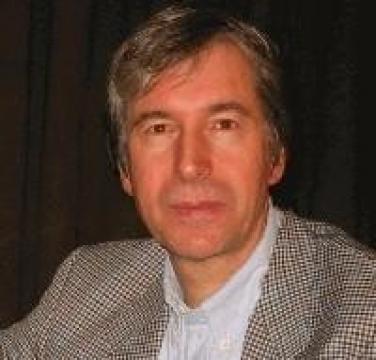
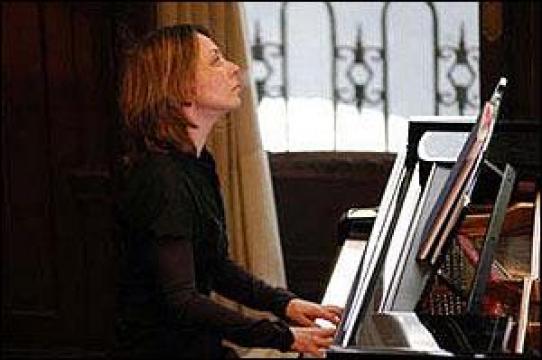

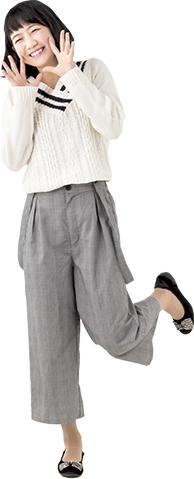

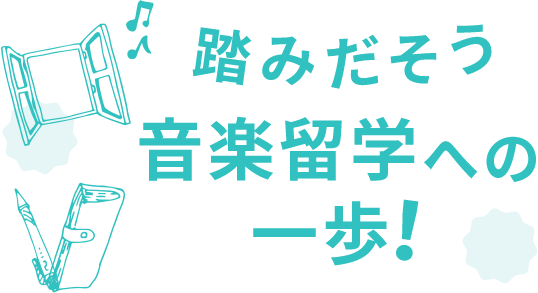
 Book a Counseling
Book a Counseling